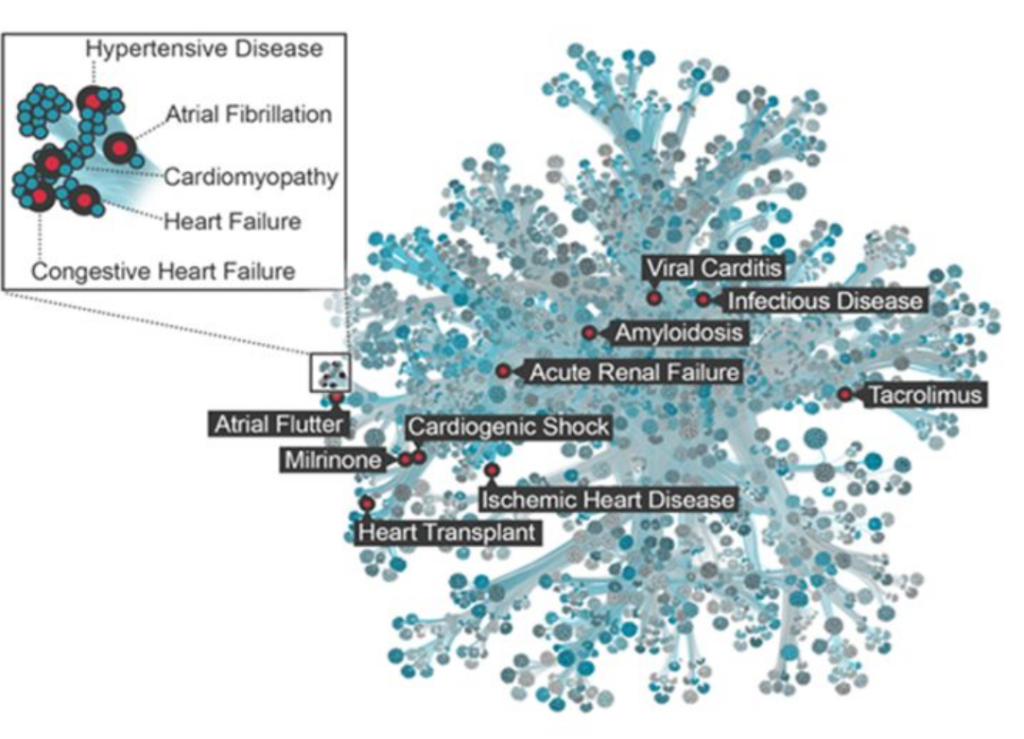
Understanding the complex clinical variables that drive cardiovascular health outcomes in patients with multiple conditions poses a major challenge for personalized medicine. University of Utah Health researchers Karen Eilbeck, PhD, Martin Tristani-Firouzi, MD, and Mark Yandell, PhD, recently developed and deployed a massively scalable comorbidity discovery method to analyze electronic health records (EHRs) from the University of Utah and Primary Children’s Hospital (over 1.6 million patients and 77 million visits) for comorbid diagnoses, procedures, and medications. Using artificial intelligence, they tease apart the intertwined impacts of patients’ comorbid conditions and demographic characteristics upon cardiovascular health outcomes, focusing on the key areas of heart transplant, sinoatrial node dysfunction, and various forms of congenital heart disease.
The resulting “multimorbidity networks” enable wide-ranging exploration of the comorbid and demographic factors in cardiovascular outcomes, and can be distributed as web-based tools for further community-based health research.
The ability to transform enormous collections of EHRs into compact, portable tools devoid of Protected Health Information solves many of the legal, technological, and data-scientific challenges associated with large-scale EHR analyses.
References:

An explainable artificial intelligence approach for predicting cardiovascular outcomes using electronic health records. Wesołowski S, Lemmon G, Hernandez EJ, Henrie A, Miller TA, Weyhrauch D, Puchalski MD, Bray BE, Shah RU, Deshmukh VG, Delaney R, Yost HJ, Eilbeck K, Tristani-Firouzi M, Yandell M. PLOS Digital Health. 2022;1(1):e0000004.
Press Releases and Media:

University of Utah Health: “Artificial Intelligence Identifies Individuals at Risk for Heart Disease Complications”

